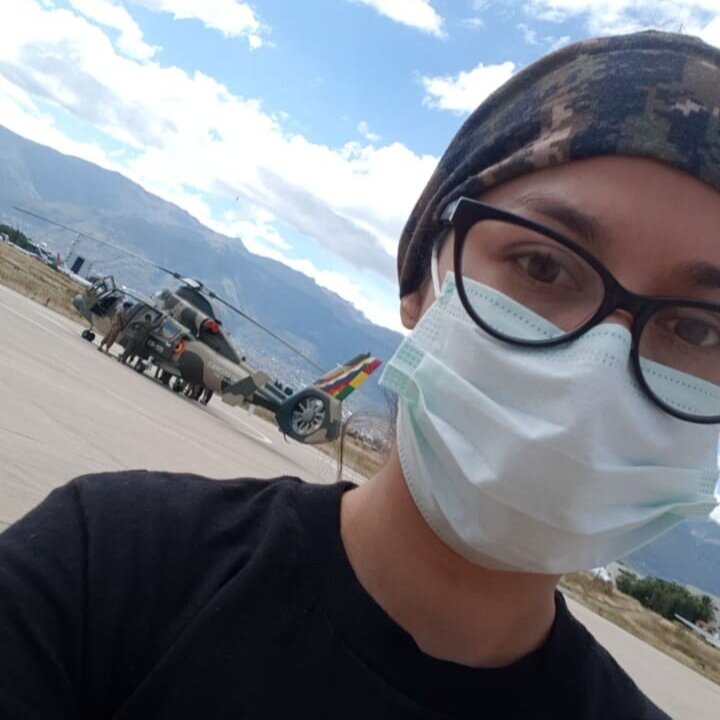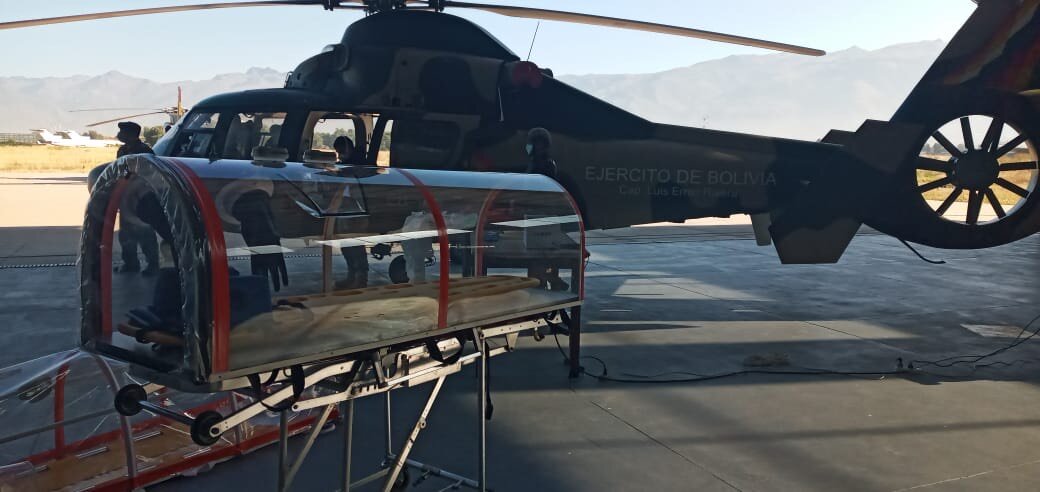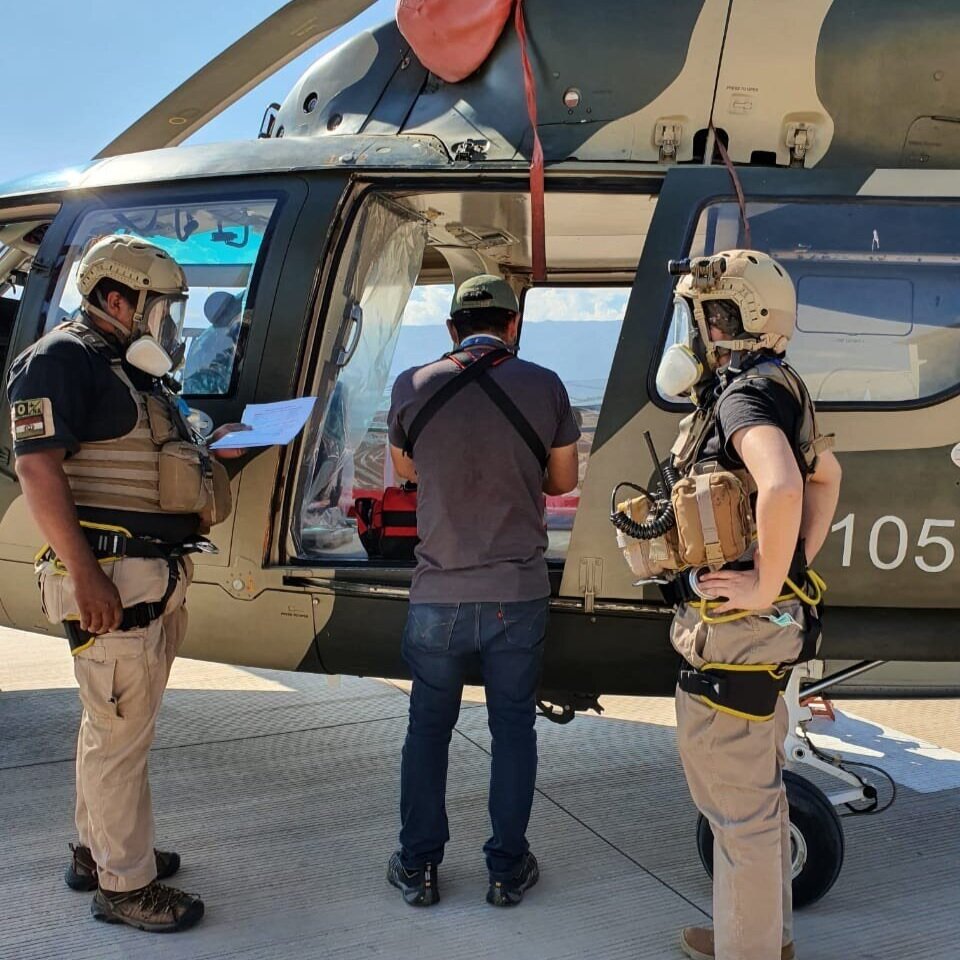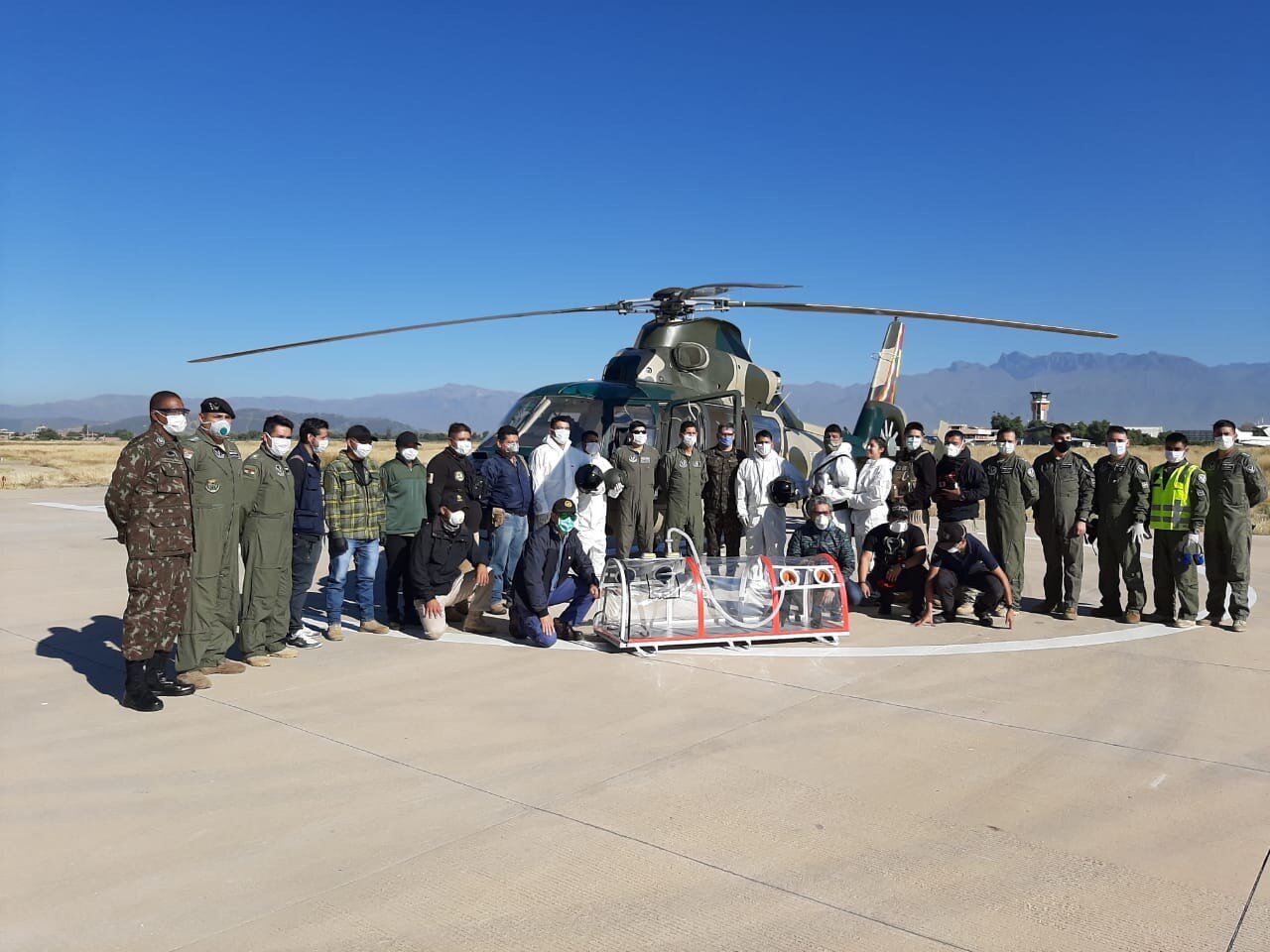From the Front Line in Bolivia
While all but emergency surgeries have been delayed by the COVID-19 crisis, many of our medical partners in hospitals across Bolivia are still working on the front lines. In this uncertain time, facing a powerful disease about which so little is known, these healthcare providers are living out our shared mission, to prioritize the care of those who are most vulnerable. One example is our friend, and frequent mission volunteer, Dr. Luciana Rasguido.
Dr. Rasguido finished her medical degree in 2016, and began her work in the neurology department at the Viedma Hospital, one of our partner hospitals in Cochabamba. We soon met when she was assigned to organize the cases for our upcoming neurosurgery mission trip. Her language skills also proved invaluable as she offered to serve as an interpreter for our mission team during the trip. She has since joined us on three more mission trips and volunteers regularly with Puente de Solidaridad. “I never pass up an opportunity to join a mission trip. These experiences introduce me to new people and give me a chance to learn new things,” shared Luciana. “I like interpreting, it’s very special to be a little bridge between Bolivian and US doctors. It’s meaningful work because if they can’t understand one another then they miss the valuable opportunity for mutual sharing of knowledge and experience.”
In January 2020, Dr. Rasguido began working as the Chief of Interns at Corporación de Seguro Social Militar, a military hospital that serves members of the military and their families in Cochabamba. In March, when the pandemic arrived in Bolivia, she shifted to work full-time with suspected COVID-19 patients. In Bolivia, the military has the mandate to protect the people and peacefully enforce the government’s quarantine restrictions. This means that military members are working in high risk settings and frequently come into contact with many other citizens. Many began coming to Dr. Rasguido’s clinic at the hospital with fever, cough or throat issues worried that they had caught the virus in the course of their duties.
Dr. Rasguido (in orange) pictured with two nurses from the COVID unit
Dr. Rasguido consults with 10-time missioners, Dr. Mark Ottolin on a 2018 mission trip.
In addition to caring for patients at the hospital, Dr Rasguido was invited by the Department of Risk Management to assist with a committee working to develop a specially equipped unit that could safely transport COVID patients from around the country to the few hospitals treating the virus.
In a country as large and mountainous as Bolivia, air travel is often the quickest way to move. The military hoped to equip an air force helicopter to transport patients urgently and safely. Together with a team of architects, members of the military, and paramedics, Dr. Rasguido worked to create an isolation capsule for this purpose.
Due to the quarantine, medical supply companies and importers were closed and the committee struggled to find the specific airway supplies needed to ensure the safety of both the paramedics and the patient. But thanks to her relationship with Puente de Solidaridad and Solidarity Bridge, Dr. Rasguido had additional resources to help her team accomplish their goal.
Calling on the office of Puente de Solidaridad (PdS), she reached José Choque, head of medical supplies and equipment. “I’ve been fielding calls from many of our medical colleagues, and wherever possible we’re providing material aid to groups mobilizing a response to the crisis,” shared José. Members of Dr. Rasguido’s team were able to visit the PdS warehouse and consulted with José on the design of the capsule. PdS was happy to donate crucial airway and biosecurity materials in our warehouse to its construction.
At the end of April, the capsule was tested and approved for use by the air force to safely transport COVID patients. Now they hope to replicate it and make it available for wider use. It will be an important tool to help patients who are far from the major hospitals access critical care.
Though we at Solidarity Bridge are unable to work by their side at this time, we are encouraged to hear that the medical supplies we’ve sent are making some small difference through the innovation, collaboration, and good will of our Bolivian partners. Our shared mission to increase access to surgery and other essential health care is needed now more than ever.
If you share our vision for a world where the health needs of those most vulnerable are prioritized and medical professionals have the necessary resources to serve their communities, please donate!





